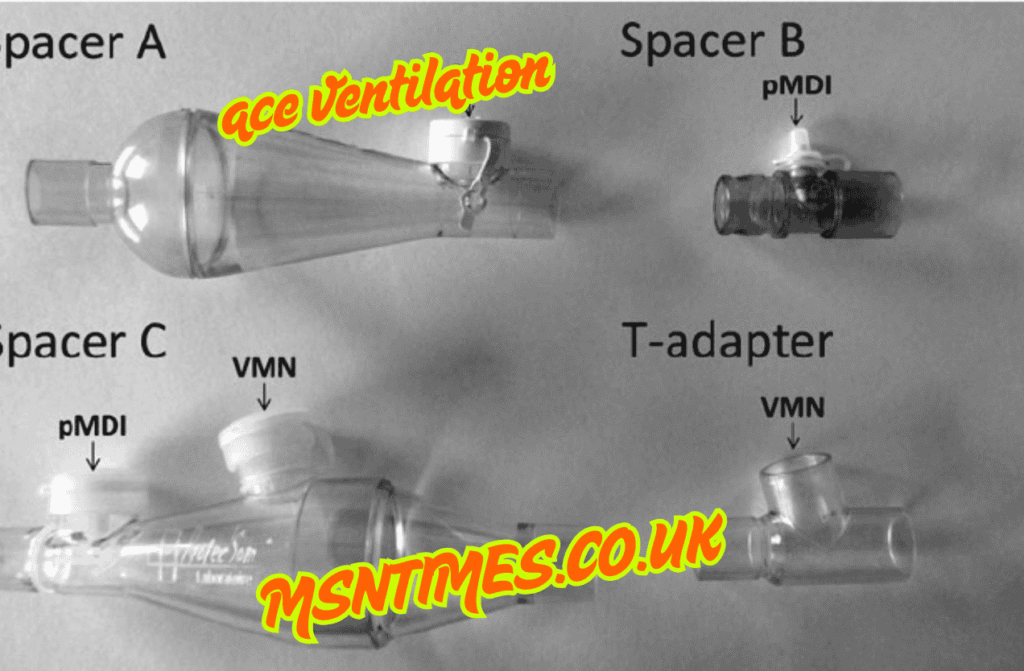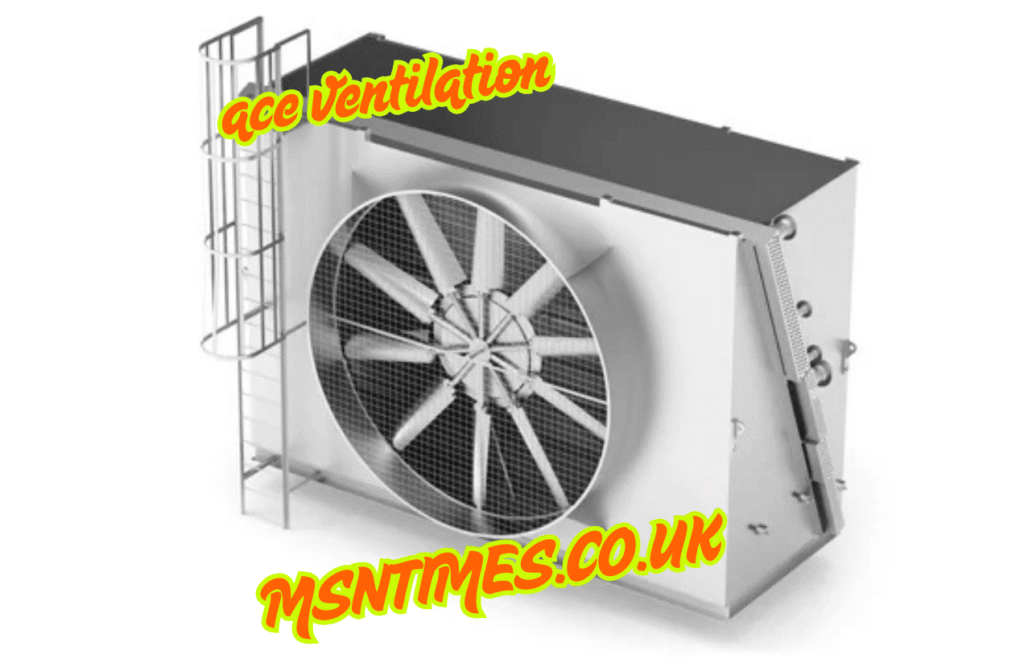Introduction to Ace Ventilation and the Mysterious “??”
When it comes to healthy living and efficient indoor environments, ace ventilation is a term gaining more attention in both residential and commercial sectors. The importance of ventilation cannot be overstated in today’s world, where air quality directly influences health, energy efficiency, and overall comfort. But what about the peculiar “??”? Is it a hidden concept, a branding twist, or an indicator of something deeper related to ace ventilation? This article dives deep into every aspect of ace ventilation, ??, and all you should know, unwrapping both the practical and perhaps symbolic meanings behind these terms.
What Is Ace Ventilation?

At its core, ace ventilation refers to a top-tier, high-performance system designed to provide optimal air circulation within a building. It is often associated with systems that exceed standard regulations, offering enhanced features like HEPA filtration, smart sensors, and adaptable airflow technologies.
Ace ventilation can be applied in various environments:
- Residential homes: Ensuring clean air circulation, especially in energy-efficient, airtight houses.
- Commercial buildings: Regulating indoor climates for productivity and health.
- Industrial spaces: Managing contaminants, temperature, and moisture for safety and compliance.
The “ace” in ace ventilation signifies superiority – it’s the top-tier choice among available options.
The Role of Ventilation in Modern Spaces

Good ventilation is essential for multiple reasons. In the context of ace ventilation, the goals include:
- Improved Indoor Air Quality (IAQ): By removing pollutants, allergens, and excess moisture.
- Thermal Comfort: Ensuring that heating and cooling systems don’t work against stale or humid air.
- Energy Efficiency: Modern ace ventilation systems often come with energy recovery features.
- Noise Reduction: Many ace ventilation systems operate quietly, maintaining a peaceful environment.
This makes ace ventilation more than just a mechanical necessity – it becomes a holistic solution for better living and working.
Breaking Down the “??” in Ace Ventilation

The enigmatic “??” could represent several things depending on context. Here’s how it might relate to ace ventilation:
- Unknown Variables: It could stand for unknown parameters or variables within an airflow model.
- Custom Solutions: In engineering terms, ?? could symbolize tailor-made or undefined options that get defined through on-site diagnostics.
- A Marketing Hook: Some companies use symbols like ?? to generate curiosity or suggest premium features that are “beyond explanation.”
- Symbolic Mystery: Maybe the intention is to provoke thought about the hidden elements of air quality and what truly makes a system “ace.”
In any case, the “??” invites deeper inquiry, which aligns with ace ventilation’s goal to go beyond the ordinary.
Features That Define Ace Ventilation Systems
When looking at the practical side of ace ventilation, certain key features stand out:
- Advanced Filtration Systems: Including HEPA filters, activated carbon filters, and UV sterilization.
- Smart Controls: Wi-Fi-enabled systems that can be controlled via apps or integrated with smart home ecosystems.
- Zoned Airflow Management: Customizing airflow for different parts of a building based on use and occupancy.
- Quiet Operation: Noise-reducing ducts, insulated panels, and brushless fans.
- Energy Recovery Ventilators (ERVs): These reduce energy loss while improving air exchange rates.
These characteristics distinguish ace ventilation from conventional setups.
The Science and Technology Behind Ace Ventilation
The science behind ace ventilation blends traditional HVAC principles with cutting-edge innovations. Computational Fluid Dynamics (CFD) simulations are often used to model airflow patterns and design systems that maximize efficiency and comfort.
Some technologies that contribute to ace ventilation include:
- IoT Sensors: Detect temperature, humidity, CO2 levels, and pollutants in real time.
- Machine Learning Algorithms: Predict ventilation needs based on occupancy and usage trends.
- Photocatalytic Oxidation (PCO): A new way of breaking down pollutants at a molecular level.
Understanding this scientific foundation can help building managers and homeowners make informed decisions.
Installation and Maintenance Considerations
For any ace ventilation system to function optimally, installation and maintenance are critical:
- Professional Assessment: Begin with a site survey to assess needs and determine the best system type.
- Proper Sizing: Oversized or undersized systems reduce efficiency.
- Regular Maintenance: Changing filters, cleaning ducts, and checking sensors.
- System Upgrades: As technology evolves, upgrading components can maintain ace-level performance.
While initial costs may be higher, the long-term benefits in terms of health and energy savings justify the investment.
Benefits of Investing in Ace Ventilation
There are numerous advantages to choosing an ace ventilation system:
- Healthier Living Environment: Reduced risk of respiratory issues and allergies.
- Lower Utility Bills: More efficient systems mean less energy wasted.
- Increased Property Value: Homes and buildings with ace ventilation are often more attractive to buyers.
- Sustainability: Lower carbon footprint due to energy-efficient design.
Whether you’re building new or retrofitting an existing property, ace ventilation is a forward-thinking choice.
Common Myths and Misunderstandings
Despite its benefits, ace ventilation is sometimes misunderstood. Let’s clear up some myths:
- “It’s Only for Commercial Buildings”: False. Residential applications are increasing rapidly.
- “Too Expensive to Justify”: While premium, the ROI in comfort and energy savings makes it worthwhile.
- “Any Ventilation Is Good Ventilation”: Not true. Poorly designed systems can do more harm than good.
- “I Don’t Need It in a New House”: Actually, newer homes are often more airtight and need active ventilation.
These misconceptions can prevent people from making one of the smartest investments in their property.
The Future of Ace Ventilation: Trends and Innovations
The future looks bright for ace ventilation systems. Here are some trends to watch:
- AI-Driven Climate Control: Smarter systems that learn and adapt over time.
- Integration with Renewable Energy: Using solar-powered ventilation systems.
- Biophilic Design Integration: Merging natural elements with ventilation planning.
- Portable Ace Ventilation Units: For temporary setups or mobile living spaces.
Innovation will continue to push the boundaries of what ace ventilation can offer.
Conclusion: Why Ace Ventilation, ??, and Clarity Matter
In summary, ace ventilation is not just a luxury – it’s a modern necessity for healthy, efficient living. The mysterious “??” might symbolize the still-evolving potential or hidden excellence within such systems. Regardless of the interpretation, the core idea is clear: ace ventilation represents the pinnacle of indoor air quality solutions.
Whether you’re a homeowner, builder, architect, or just curious about what goes into breathing better air, understanding ace ventilation is a critical step toward smarter living.
So the next time you see the phrase “ace ventilation, ??,” take a moment to appreciate both the visible innovations and the subtle sophistication it represents
Also Read : WD Door Fixes & Maintenance Tips: Does WD-40 Work on Squeaky Doors, Hinges, and Locks?
